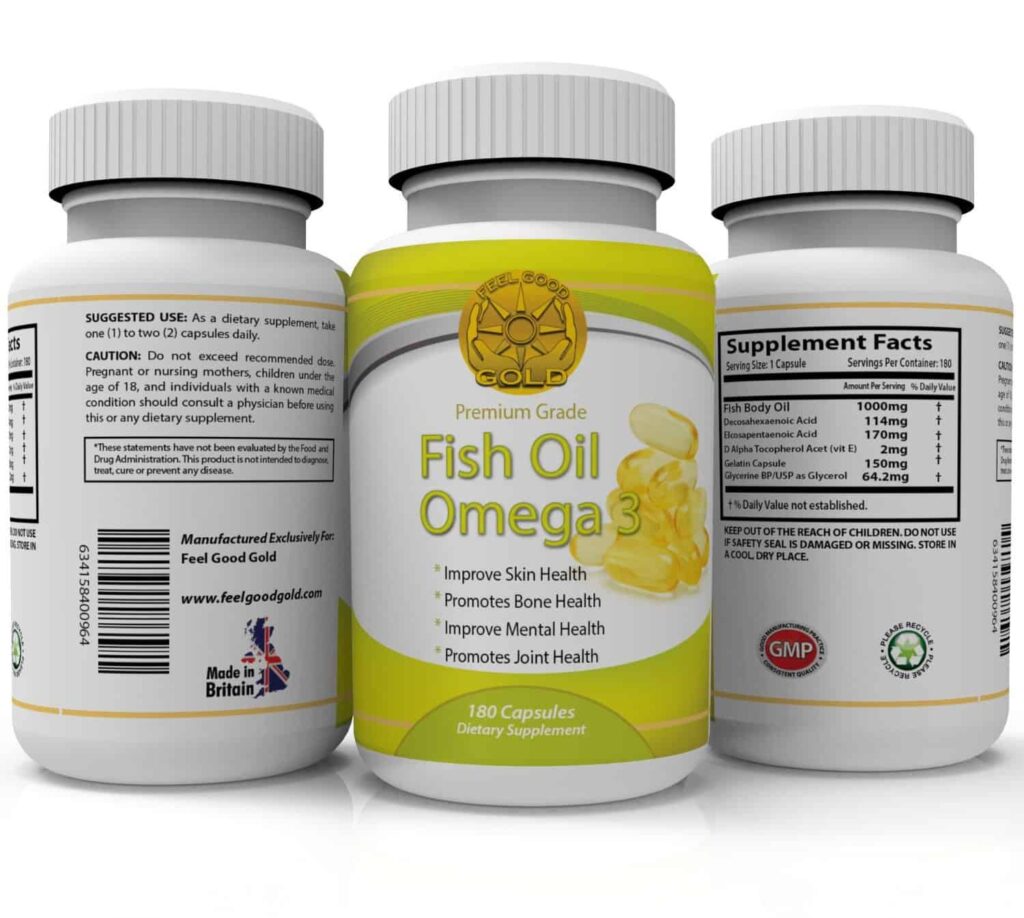Introduction
Omega-3 fatty acids, specifically eicosapentaenoic acid (EPA) and docosahexaenoic acid (DHA), are essential fats that play a crucial role in maintaining optimal health. While these fatty acids can be found in certain plant sources like flaxseeds and chia seeds, the most abundant and easily accessible source of omega-3s is fish oil. Fish oil supplements have gained immense popularity due to the numerous health benefits they offer. In this comprehensive guide, we will explore the science-backed advantages of omega-3 fatty acids, their impact on various body systems, and how they contribute to overall well-being.
Heart Health
Omega-3 fatty acids have been extensively studied for their positive effects on cardiovascular health. EPA and DHA are known to reduce triglyceride levels, a type of fat in the bloodstream that can increase the risk of heart disease when elevated. Additionally, omega-3s help lower blood pressure, reduce inflammation, and prevent the formation of dangerous blood clots. Regular consumption of fish oil has been associated with a decreased risk of heart attacks, strokes, and other cardiovascular events.
Brain Function and Cognitive Health
The brain is primarily composed of fat, and omega-3 fatty acids, especially DHA, play a vital role in maintaining its structure and function. DHA is essential for brain development during pregnancy and infancy, contributing to improved cognitive function and visual acuity in children. For adults, omega-3s have been linked to a reduced risk of age-related cognitive decline, memory loss, and neurodegenerative diseases like Alzheimer’s and dementia.
Mood and Mental Health
The relationship between omega-3 fatty acids and mental health has garnered significant attention from researchers. Studies suggest that EPA and DHA may have a positive impact on mood disorders, including depression and anxiety. Omega-3s are believed to influence neurotransmitter pathways in the brain, leading to enhanced emotional well-being and a lower risk of developing certain mental health conditions.
Inflammation and Joint Health
Chronic inflammation is associated with numerous health issues, including arthritis and joint pain. Omega-3 fatty acids possess potent anti-inflammatory properties, which can help reduce pain and stiffness in the joints. Incorporating fish oil supplements into one’s diet may alleviate symptoms of rheumatoid arthritis and other inflammatory joint conditions.
Eye Health
DHA, a prominent component of omega-3 fatty acids, is highly concentrated in the retina of the eye. It plays a pivotal role in maintaining retinal health and visual acuity. Studies have shown that regular consumption of omega-3s can help protect against age-related macular degeneration, a leading cause of vision loss in older adults.
Skin Health
The health benefits of omega-3s extend to the skin as well. These essential fats contribute to the maintenance of healthy cell membranes, improving skin hydration and reducing the appearance of wrinkles. Omega-3 fatty acids also possess anti-inflammatory properties that can help manage skin conditions like eczema and psoriasis.
Pregnancy and Early Development
During pregnancy, omega-3 fatty acids are crucial for the development of the fetal brain and eyes. Adequate intake of DHA is associated with improved cognitive function and visual acuity in infants. Additionally, omega-3s may help reduce the risk of preterm birth and support healthy gestational outcomes.
Immune System Support
Omega-3 fatty acids play a vital role in modulating the immune response. They help regulate inflammation and enhance the activity of immune cells, contributing to a strengthened immune system and improved ability to fight off infections.
Weight Management
Incorporating omega-3 fatty acids into a weight loss plan may yield positive results. These fats can increase feelings of fullness, reduce hunger, and improve metabolism, making it easier for individuals to adhere to a healthy eating plan and achieve their weight loss goals.
Omega-3 Fatty Acids: An Essential Introduction
Omega-3 fatty acids are polyunsaturated fats that cannot be synthesized by the human body, making them essential nutrients that must be obtained through the diet. The two most important types of omega-3s are eicosapentaenoic acid (EPA) and docosahexaenoic acid (DHA), commonly found in fatty fish like salmon, mackerel, and sardines. Alpha-linolenic acid (ALA) is another type of omega-3 found in plant-based sources such as flaxseeds and walnuts. While ALA is beneficial, the body needs to convert it to EPA and DHA, which is often an inefficient process. For this reason, fish oil supplements have become a popular and reliable way to ensure sufficient intake of EPA and DHA.
Understanding the Omega-6 to Omega-3 Ratio
Omega-6 fatty acids are another type of polyunsaturated fat found in abundance in many modern diets, primarily in vegetable oils and processed foods. While omega-6 fats are essential for certain bodily functions, an excessive intake can lead to an imbalance between omega-6 and omega-3 fatty acids. A diet high in omega-6 and low in omega-3 can promote inflammation and increase the risk of chronic diseases, such as cardiovascular issues and inflammatory conditions. Striking the right balance between omega-6 and omega-3 intake is crucial for optimal health, and consuming fish oil supplements can help achieve this balance.
Sources of Omega-3 Fatty Acids for Vegans and Vegetarians
For individuals following a vegetarian or vegan lifestyle, obtaining adequate amounts of EPA and DHA can be challenging, as these fatty acids are primarily found in fish and other animal sources. While ALA from plant-based foods can be converted to EPA and DHA to some extent, the conversion rate is limited. To ensure sufficient intake, vegans and vegetarians can explore alternative sources such as algae-based supplements that provide EPA and DHA directly from marine microalgae, making them a suitable and sustainable option for plant-based diets.
Best Practices for Selecting and Using Fish Oil Supplements
When choosing fish oil supplements, it is essential to opt for high-quality products from reputable brands. Look for supplements that have been molecularly distilled to remove potential contaminants like heavy metals and toxins, ensuring a safe and pure product. Additionally, pay attention to the EPA and DHA content per serving, as this varies between different brands and formulations. Always follow the recommended dosage provided by the manufacturer or consult with a healthcare professional to determine the appropriate dosage based on individual health needs and conditions.
Potential Side Effects and Interactions
While omega-3 fatty acids are generally well-tolerated and considered safe, some individuals may experience mild side effects, such as fishy aftertaste, gastrointestinal discomfort, or mild allergic reactions. To minimize these effects, try refrigerating the supplements or taking them with meals. Moreover, individuals taking blood-thinning medications or those with specific medical conditions should exercise caution and consult with a healthcare provider before starting fish oil supplementation to avoid potential interactions or adverse effects.
Conclusion
The benefits of omega-3 fatty acids, particularly those found in fish oil, are abundant and well-supported by scientific research. From heart health and brain function to mood regulation and joint health, these essential fats play a critical role in maintaining overall well-being. Incorporating omega-3-rich foods or supplements into your diet can offer a multitude of advantages that contribute to a healthier and more fulfilling life. However, as with any supplement, it is essential to consult with a healthcare professional before beginning a new regimen to ensure it aligns with your specific health needs and goals.
I presently work as a GP in London. Using the acquired academic and professional experience, I advise patients with various complaints about mental health – depressed mood, nervousness, lack of energy and interest, sleep disorders, panic attacks, obsessive thoughts and anxieties, difficulty concentrating, and stress. In my free time, I love to paint and go on long walks on the beach. One of my latest obsessions is sudoku – a wonderful activity to calm an unease mind.
[email protected]
- Kratom Capsules By Just Kratom-Capsule Chronicles: Exploring Just Kratom’s Kratom Capsules - September 27, 2023
- Delta 8 Gummies By Just Delta:A Flavorful Adventure and Honest Review - September 25, 2023
- Unveiling the Sensual Spectrum: Discovering the Best CBD Strains to Elevate Your Intimate Moments - September 22, 2023











